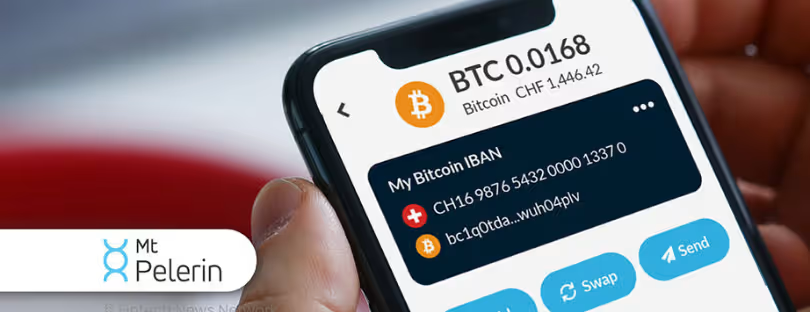
Scalable Enterprise Solutions: Public Blockchain Value
In early 2019, the business standards company BSI partnered up exclusively with Trace Labs, the core developers of OriginTrail, to deliver blockchain-enabled solutions. With such solutions, the British Standards Institution (BSI) seeks to enhance its global assurance, certification, and supply chain services by ensuring the integrity of digital records. Scalable Enterprise Solutions
In collaboration with Trace Labs, BSI is now launching a series of blockchain-based solutions catering to both organizations and individuals aiming to build resilience in their supply chains, a need becoming even more apparent in light of the COVID-19 virus outbreak. Solutions described in the recently released BSI white paper – titled “Instruments of Trust: BSI’s Blockchain-Based Solutions” – enable a secure and trusted way of verifying the authenticity of claimed personal credentials as well as company and product certifications. BSI has also introduced the SCAN Trusted Factory Blockchain Program designed for US importers to ensure the authenticity of a factory’s certification and factory credentials.
False assertions are prevalent in society leaving people uncertain of whom and what to trust. Counterfeit products and false claims are far too commonplace and perpetually flood the market. Examples include counterfeit drugs/fentanyl-laced prescriptions, false or misleading food labels, and the range of credentials provided to others as part of our daily lives – passports, qualifications and so on. Challenges remain within legacy trust systems, as businesses and consumers demand an immutable source of truth and verification.
“In today’s global, interconnected economy, there is a growing trust deficit felt by businesses and consumers,” said, Dan Purtell, BSI Group Innovation Director
To help combat false claims, BSI partnered with Trace Labs in early 2019 and has since used technology based on the OriginTrail Decentralized Network (ODN) in three pilot projects. This allowed BSI to provide a suite of solutions that serve as instruments of trust for its clients, enhancing the resilience of its brands. Using DLT technology as a single source of truth, they aim to provide clients with the ability to demonstrate to their customers the authenticity of their claims, be it certifications, product authenticity, or traceability. BSI and Trace Labs are continuing to develop new solutions beyond the three pilot projects. Scalable Enterprise Solutions
The aim of the partnership is to help clients:
- Comply with regulations and standards;
- Meet client expectations concerning product features and claims (safety, quality, and other attributes);
- Manage business risk and product quality and reduce the cost of non-conformity;
- Be able to effectively manage product recalls with near-real-time corrective action; and
- Extract more value out of data already generated in global supply chains.
As per the announcement made in January 2019, Howard Kerr, Chief Executive of BSI, stated: “In today’s increasingly interconnected world, transparency and traceability throughout the supply chain is vital. This strategic partnership aims to provide our clients with the ability to demonstrate the authenticity of their compliance through the digital records of the assessments and certifications they have achieved from BSI. Ultimately building trust and confidence as consumers and business partners can easily verify the provenance of the goods and/or services they are buying.”
The BSI has now launched a series of blockchain-based solutions developed together with Trace Labs and published a white paper detailing three applications designed to provide organizations and individuals with secure and trusted means of verifying the authenticity of claimed personal credentials as well as company and product certifications.
Jurij Skornik, General Manager of Trace Labs, said: “We have been working closely with our partners at BSI for the past year to enhance their world-class assurance services with our state-of-the-art trust-enhancing technology. The results are three applications that help individuals and companies demonstrate and verify the authenticity of issued credentials, the importance of which has been made indisputably clear in the COVID-19 world. We are looking forward to continuing our cooperation with BSI and developing new solutions that infuse trust into businesses around the world.” Scalable Enterprise Solutions
One of the introduced solutions is the Supplier Compliance Audit Network (SCAN) Trusted Factory Blockchain Program designed for US importers to ensure the authenticity of a factory’s certification and factory credentials. SCAN is an association of importers that was formed to eliminate foreign factory audit fatigue associated with supply chain security importing criteria within the US Customs Trade Partnership Against Terrorism program (CTPAT). SCAN importing members have combined annual sales of USD 1.25 trillion and source from factories around the world. More than 50 percent of these factories are shared by multiple SCAN members, which, prior to SCAN, would have resulted in the facilities having regular audits by independent importers. Today, SCAN has more than 18,000 factories in the SCAN database and the program’s popularity has grown internationally, with several hundred audits conducted monthly. The solution secures permissioned audit data and factory credentials on the ODN, based on the public Ethereum blockchain, and makes them accessible to SCAN members and interested government agencies such as CTPAT for viewing. The implementation utilizes the global W3C Verifiable Credentials data model to ensure interoperability and compatibility with novel frameworks such as the Self Sovereign Identity (SSI) framework.
Speaking about the BSI white paper, Ken McElroy, Mgr. Global Trade Risk Home Depot noted: “As a Tier III CTPAT business partner The Home Depot continually strives for improvements in its supply chain security platform. Membership in SCAN has delivered both an effective platform as well as cost savings through the use of shared audits. Adding a secured blockchain element over the top of the SCAN audit only increases the security and integrity of these audits! With the intention of this level of integrity and security leading to a “trusted factory” program with the various regulatory agencies further costs should be driven out of the supply chain.”









